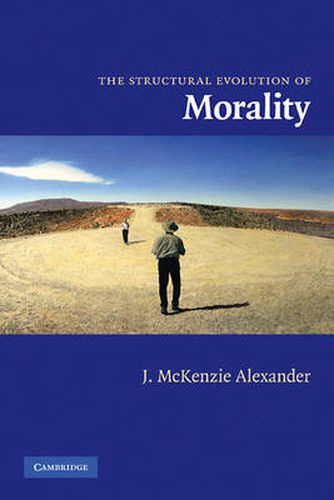Readings Newsletter
Become a Readings Member to make your shopping experience even easier.
Sign in or sign up for free!
You’re not far away from qualifying for FREE standard shipping within Australia
You’ve qualified for FREE standard shipping within Australia
The cart is loading…






It is certainly the case that morality governs the interactions that take place between individuals. But what if morality exists because of these interactions? This book, first published in 2007, argues for the claim that much of the behaviour we view as ‘moral’ exists because acting in that way benefits each of us to the greatest extent possible, given the socially structured nature of society. Drawing upon aspects of evolutionary game theory, the theory of bounded rationality, and computational models of social networks, it shows both how moral behaviour can emerge in socially structured environments, and how it can persist even when it is not typically viewed as ‘rational’ from a traditional economic perspective. This book also provides a theory of how moral principles and the moral sentiments play an indispensable role in effective choice, acting as ‘fast and frugal heuristics’ in social decision contexts.
$9.00 standard shipping within Australia
FREE standard shipping within Australia for orders over $100.00
Express & International shipping calculated at checkout
It is certainly the case that morality governs the interactions that take place between individuals. But what if morality exists because of these interactions? This book, first published in 2007, argues for the claim that much of the behaviour we view as ‘moral’ exists because acting in that way benefits each of us to the greatest extent possible, given the socially structured nature of society. Drawing upon aspects of evolutionary game theory, the theory of bounded rationality, and computational models of social networks, it shows both how moral behaviour can emerge in socially structured environments, and how it can persist even when it is not typically viewed as ‘rational’ from a traditional economic perspective. This book also provides a theory of how moral principles and the moral sentiments play an indispensable role in effective choice, acting as ‘fast and frugal heuristics’ in social decision contexts.